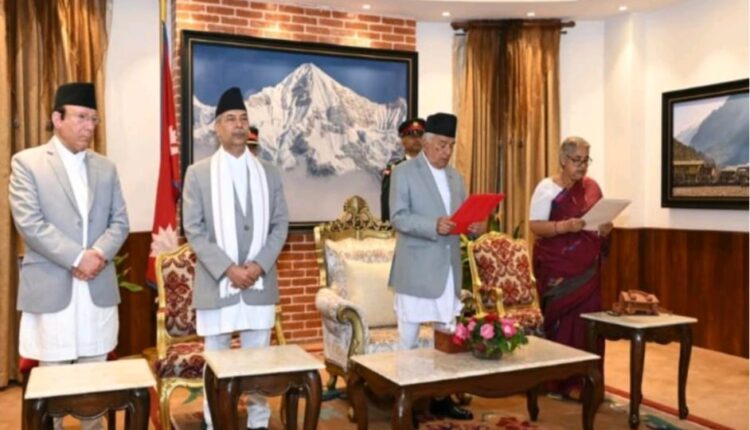Appointment of Interim Prime Minister Raises Legal and Constitutional Concerns
Samridhi Sah, Law Student
The appointment of an interim prime minister following the Gen’Z protests has sparked significant legal and constitutional debate in Nepal. The protests on September 8 and 9, initially peaceful, escalated into violence, resulting in multiple deaths and extensive damage to public and private property, including the Parliament, Singh Durbar, the Supreme Court, and large private enterprises. The events led to the resignation of the former Prime Minister and created the need for an interim government to maintain political stability.
Constitutional and Legal Issues
Articles 76 and 78 of the 2015 Constitution of Nepal outline the proper procedure for appointing a prime minister. The president must appoint the leader of the majority party in the House of Representatives or, if no majority exists, someone who can secure majority support from two or more parties. If no such leader emerges, the head of the largest party is appointed, and failing that, elections are called.
The current appointment did not strictly follow these constitutional provisions, raising concerns over violations of the rule of law. Furthermore, retired chief justices are constitutionally barred from assuming the role of interim prime minister due to the separation of powers, which ensures checks and balances between the executive and judiciary.
Legal Theories in Context
Bentham’s Utilitarianism: Government actions should maximize public welfare and minimize harm. Aristotle’s Constitutional Necessity: Extraordinary measures may be justified during crises, but they must be rational, proportionate, and serve the common good.
Historical Precedent
In Writ No. 069-Wo-0976 (Chandrakant Gyawali vs. Interim Electoral Council of Ministers), the Supreme Court dismissed a petition against appointing Khil Raj Regmi as interim prime minister. That decision, influenced by political necessity, was criticized as undermining constitutional principles and separation of powers, setting a controversial precedent.
Role of an Interim Prime Minister
Experts note that a caretaker prime minister should:
Manage daily administration efficiently.
Facilitate and oversee free and fair elections.
Remain neutral, avoiding political favoritism.
Represent Nepal in routine international matters without making binding long-term commitments.
Avoid controversial or irreversible decisions.
Not dissolve parliament or amend the constitution.
Way Forward
The interim prime minister is expected to uphold democracy, ensure accountability, and promote national unity. Independent investigations into the September 8–9 violent incidents are essential to prosecute those responsible and safeguard Nepal’s public and private infrastructure. Upholding the constitution and rule of law is critical for sustainable peace, good governance, and national development.
